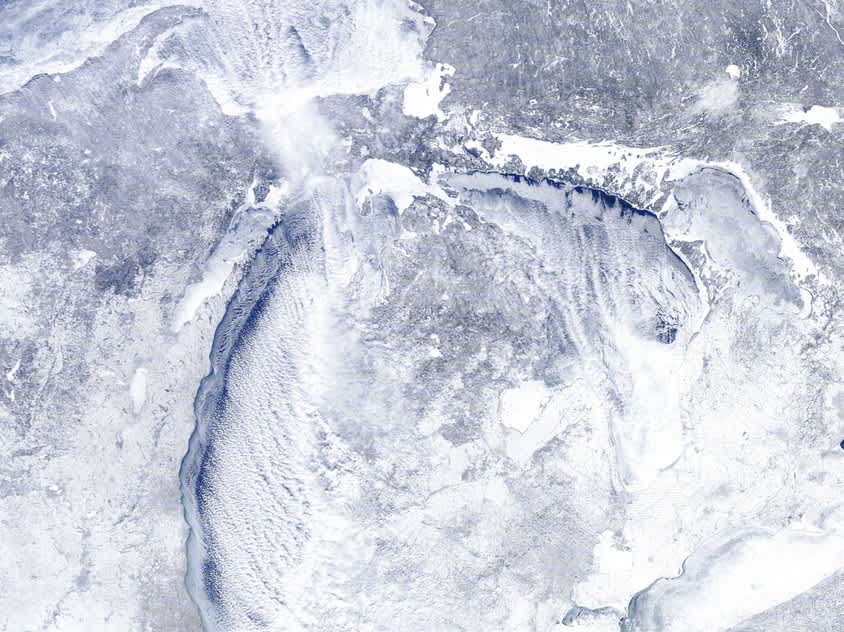Frigid Temperatures Freeze Great Lakes, Could Beat Last Year’s Ice Coverage
OutdoorHub Reporters 02.20.15

Freezing Arctic temperatures may be good for ice fishermen and sightseers on the Great Lakes, but few expected this year’s deep freeze to trump 2014’s 92.5 percent ice coverage, which made last year the second iciest since 1973. Yet frigid temperatures have advanced ice cover across the lakes, which according to National Oceanic and Atmospheric Administration (NOAA), reached 80.9 percent on Thursday.
Experts said that in recent days, 2015’s ice coverage has been consistently outpacing last year’s ice growth, leading many to expect that 2015 may make a run for the record. In fact, experts believe that the extensive ice coverage could actually lead to cooler tempratures in spring, causing higher lake levels and a later spawning season for fish.
“When you have this much ice, it means it’s around longer than it typically is.” state climatologist Jeff Anderson told The Detroit News.
Those hoping for a warmer March should brace for disappointment. The National Weather Service has predicted that next month will likely be colder than the region is used to, balanced by above-average temperatures starting in April. If the lake ice lasts beyond the April thaw, it could affect spring temperatures.
“By April or May, usually the ice is gone, usually probably anywhere from early to late April,” George Leshkevitch, a scientist with the NOAA’s Great Lakes Environmental Research Laboratory, told the Chicago Tribune. “Last year, we had ice throughout May, and even lingering into June. If that happens again, we’re likely to have a cool spring—which is good for the fruit growers along Lake Michigan, [saving] them from possible killing frost.”
Lengthy ice coverage could also delay the development of algae, possibly preventing fish-killing algae blooms. Yet ice is not always a good thing, especially for wildlife. Last year’s icy conditions have resulted in a large-scale decline of waterfowl, especially ducks. Unable to break through the ice to get at the minnows that are their main food source, ducks either starved or were forced to eat to toxic zebra mussels. Experts say that winter kills are always expected, but 2014’s duck decline was especially notable.
“This is unprecedented. Biologists who’ve worked here for 35 years have never seen anything like this,” Connie Adams, a biologist with the New York Department of Environmental Conservation, told the Associated Press last year.”We’ve seen a decline in tens of thousands in our weekly waterfowl counts.”
If the ice lasts long enough, climatologists say it could even cause a cooler summer later this year.

